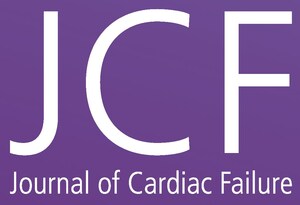ROCKVILLE, Md., July 16, 2020 /PRNewswire/ -- Listening to recorded classical music is a non-invasive method to improve quality of life for a person living with heart failure, according to a recent study published in the Journal of Cardiac Failure, and accompanied by editorials from internationally acclaimed soprano Renée Fleming, Artistic Advisor at the John F. Kennedy Center for the Performing Arts; Sheri L. Robb, PhD, MT-BC, Professor at the Indiana University School of Nursing; and Jerome L. Fleg, MD, a cardiologist at the National Heart, Lung, and Blood Institute, part of the National Institutes of Health (NIH).
In the study Beneficial Effects of Listening to Classical Music in Patients With Heart Failure: A Randomized Controlled Trial, Francesco Burrai, RN, PhD, and a team of researchers at Sassari University Hospital in Sassari, Italy evaluated the effects of listening to classical music (in addition to standard medical treatment) on quality of life, sleep quality, anxiety, depression, and cognitive performance. The trial, conducted at 4 Italian cardiology institutions, enrolled 159 outpatients with documented chronic HF; patients in the experimental group listened to recorded classical music from a playlist of 80 different tracks for at least 30 minutes per day for 3 months while resting at home, whereas the control group received usual standard of care.
During the observation period, patients in the music group showed greater improvements in quality of life, sleep, reduction of both anxiety and depression levels, and cognitive performance.
"Our conclusions are that listening to classical music is a feasible, noninvasive and inexpensive intervention, on top of a good standard medical regimen, able to improve the quality of life in patients with heart failure in the home-care setting," said Dr. Burrai. "In the future, it would be important to investigate the effects of music listening in terms of reduction of congestion, evaluated with lab tests and biomarkers, and improvement of functional capacity, such as exercise tolerance and oxygen consumption."
"The Journal has previously published analyses of Waon therapy and Mind-Body interventions in heart failure, and the Burrai contribution adds to an important and growing literature about holistic approaches to the management of chronic heart failure," said Dr. Paul J. Hauptman, Editor in Chief of the JCF. "The study is noteworthy in that the National Institutes of Health has supported a music-based initiative with soprano Renée Fleming called Sound Health. The current paper by Burrai adds heart failure as a potential target for music intervention and we are pleased to have accompanying commentaries by Ms. Fleming and Dr. Jerome Fleg of the NIH."
Serving as Artistic Advisor to the Kennedy Center, Ms. Fleming, in spearheading the collaborative Sound Health: Music and the Mind initiative between the Kennedy Center and NIH, is uniquely positioned at the intersection of health and music. Sound Health brings together leading neuroscientists, music therapists, and arts practitioners to better understand the impact of the arts on the mind and body.
In an accompanying editorial Can Music Touch the Heart? Ms. Fleming and co-author Dr. Robb provide commentary on the increasing use of music listening in medicine and medical research. Ms. Fleming and Dr. Robb discuss the efficacy of classical music listening on physical outcomes in patients, such as longer, fuller breathing and altered stress levels. They also address community-based music programs as a way to encourage social interaction and support, which may result in a reduction in loneliness and an increased interest in life.
"I'm encouraged to see these initial findings, which showcase yet another tremendous health benefit possible from listening to music," said Ms. Fleming. "At the NIH-Kennedy Center Sound Health Initiative, we work toward a greater understanding of the role music plays in our health and well-being, through collaborations with researchers across many disciplines, including cardiology. I look forward to continued research to learn how music programs can positively impact the quality of life for people living with heart failure."
Ms. Fleming and Dr. Robb, along with Dr. Fleg in his editorial, raise a number of questions left unanswered in the study that represent opportunities for future investigation. In an editorial entitled Music Intervention for Improving Quality of Life in Heart Failure: Ready for an Audition? Dr. Fleg noted the need for physiologic and blood chemistry measurements before and after the intervention, as well as activity logs to better understand the effects of music listening in patients with heart failure.
"While many questions remain, including whether the type of music and duration of exposure matter, and whether other surrogate markers and hard outcomes are favorably impacted, the study provides fascinating preliminary data on a novel approach and adds music as a potential therapeutic intervention. Additional research is clearly needed and we look forward to learning more about the physiologic and biological effects of music on the heart," said Dr. Hauptman.
The article and accompanying editorials can be accessed via the online version of the Journal of Cardiac Failure and below:
Music Intervention for Improving Quality of Life in Heart Failure: Ready for an Audition?
About the Heart Failure Society of America
The Heart Failure Society of America is a multidisciplinary organization working to improve and expand heart failure care through collaboration, education, research, innovation, and advocacy. HFSA members include physicians, scientists, nurses, nurse practitioners, pharmacists, and patients. HFSA's goal is to significantly reduce the burden of heart failure on patients and families worldwide. For more information, visit hfsa.org.
About the Journal of Cardiac Failure
The Journal of Cardiac Failure publishes peer-reviewed manuscripts of interest to clinicians and researchers in the field of heart failure and related disciplines. These include original communications of scientific importance and review articles involving clinical research, health services and outcomes research, animal studies, and bench research with potential clinical applications to heart failure. The Journal also publishes manuscripts that report the design of ongoing clinical trials and editorial perspectives that comment on new developments pertinent to the field of heart failure.
Media Contact: Laura Poko, 301-798-4493, ext. 226, [email protected]
For more information on the NIH/Kennedy Center Sound Health Initiative, visit:
https://www.nih.gov/research-training/medical-research-initiatives/sound-health
https://www.kennedy-center.org/soundhealth/
For more information on Renée Fleming's Music and the Mind advocacy, visit:
https://reneefleming.com/advocacy/music-and-the-mind/
Renée Fleming also leads a weekly webinar series, Music and Mind LIVE, in conversation with scientists and practitioners exploring the powerful impact of music and arts on human health and the brain. Guests have included 19th US Surgeon General Vivek Murthy, neuroscientist Daniel J. Levitin, NIH Director Dr. Francis Collins, and more. Live episodes air Tuesdays at 5 PM EDT / 2 PM PDT. Episodes are free to watch, with no registration required, and can be watched live at https://facebook.com/ReneeFlemingMusic or http://www.youtube.com/TheKennedyCenter.
SOURCE Heart Failure Society of America

Related Links
WANT YOUR COMPANY'S NEWS FEATURED ON PRNEWSWIRE.COM?
Newsrooms &
Influencers
Digital Media
Outlets
Journalists
Opted In






Share this article